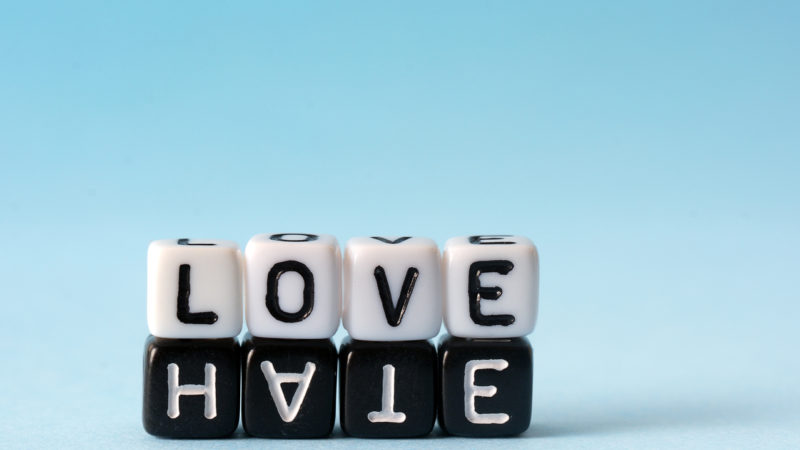The feeling of loving a friend, partner, or family member is all-consuming and comforting. Despite the hills and valleys that come with that intimate relationship, love has a way of shining bright through it all. But, what happens when the seeds of hate start to sprout in a garden of love and you find yourself filled with both admiration and disdain for the same person? While hate is essentially on the other end of the spectrum of feelings, emotional ambivalence happens and it is not uncommon.
As it’s happening, you may not realize that you are indeed in the midst of loving and hating a person all at the same time. Unlike the person that you despise or the family member that you absolutely adore, emotional ambivalence allows for hate and love to co-exist rather than one overshadowing the other. When you’re a small child and you express hostility, in that moment, you feel that your feelings are the only reality, and you forget about loving feelings. Small children cry out, “I hate you” or “I wish you would die”, a child actually believes that is what they want. Hopefully, the adults or caregivers around them can understand that the hostility is just a passing state, not absolute, and that the child couldn’t help themselves in expressing their feelings nor do they always understand.
As we grow up, hopefully our experiences teaches us the same thing, that despite having any underlying feelings of anger or hate, we might not always feel that way – it is a passing feeling, and it is possible to love that same person.
The dichotomy between emotions of love and hate can be confusing when they seem to exist at the same time. Anyone who has struggled to hold back angry feelings during an argument, including the wish to become physical, knows how difficult this can be. In my psychotherapy practice, I am particularly struck when a partner blurts out “Fuck you!” That partner invariably starts to say some of the most hurtful statements to inflict pain on their significant other. Although there can be many reasons for the hostility, such as a breach of trust or deep feelings of hurt – just to name a few, what I’ve learned in those moments as the observer is that the ambivalence of holding two feelings could no longer be tolerated, and hatred won out.
For some people, the way that they are able to cope with this ambivalence is by splitting, which is a basic defense mechanism where you learn to redirect the negative emotion elsewhere so that they can preserve the love that they have for that person. In the real world, this can translate into a person being very judgmental or rude for seemingly no reason. While this may provide momentary relief, it will fade and the hate is essentially still there. Projecting that anger and frustration elsewhere is like a quick distraction that really isn’t addressing the issue at hand. It doesn’t help you find a way to balance and tolerate difficult emotions and live happily while doing so. Being able to express your anger, frustration, or hostility gives you the space to other pleasurable emotions, and work towards a finding a solution to the issue.
As we mature and learn to navigate our feelings, learning to decipher the root of the hate or hostility and tolerate these feelings enables us to relate better with others. Balancing between the feelings of hate and love is a part of life and growing up. For some people, the feelings of hate are momentary or situational and they are able to move beyond it and rebuild their love. However, some are in situations where the pendulum is constantly swinging between the two emotions, pinging on one side and then the other. In that instance, finding a way to tolerate both while addressing the negative feelings can offer a calming relief for everyone in the partnership.
Turning Inward:
The best place to start your journey into exploring these feelings is to take a look at the arguments you’ve had in the past with your partner or parents. Can you remember what it felt like to get angry and lash out? How did you cope with it? Take a look at the resulting damage without trying to take refuge in self-justifications, like “He deserved it” or “She started it.”
If you can look at this part of you it may give you some insight into your beliefs and attitudes toward hostility in general and your ability to accept it as part of you.
In my practice, some of my clients have felt a deep sense of relief when I helped them acknowledge their anger or hostility towards their partners, parents or even, children. Facing the reality of your hostile feelings towards loved ones, accepting that it’s okay to feel hatred may come as a relief to you, too.







